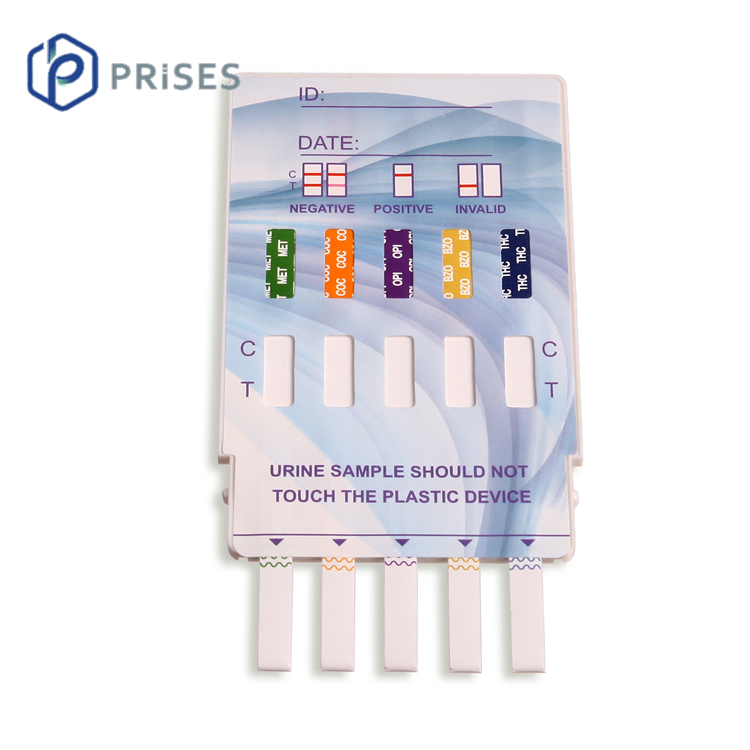Feb . 06, 2025 05:35 Back to list
H.pylori Ag HP Feces Rapid Test Kit
Navigating the realm of digestive health can often feel like navigating a dense fog with limited visibility. One of the pivotal tools in illuminating this path is the H. pylori test. Helicobacter pylori, commonly known as H. pylori, is a bacterium that takes residence in the stomach, often leading to various gastrointestinal complications. Recognizing the significance and intricacies of the H. pylori test not only helps in alleviating health concerns but also plays a critical role in enhancing life quality.
For healthcare practitioners, choosing the correct H. pylori test is paramount. Factors such as patient symptoms, treatment history, and potential antibiotic usage request careful consideration. Integrating these personalized factors ensures the maximum efficacy of the testing process, emphasizing the nuances of patient-centric care. Harnessing these tests effectively also involves understanding their interpretation, a critical factor that extends beyond merely obtaining results. The outcome of an H. pylori test requires nuanced analysis, often necessitating a seamless collaboration between gastroenterologists, pathologists, and primary care doctors. This multidisciplinary approach ensures a comprehensive understanding, addressing not just the presence of the bacterium but the broader implications for a patient's health. Educational outreach about H. pylori and its implications also holds immense importance for reinforcing patient understanding. By demystifying what the test entails and its implications, healthcare providers cultivate an environment of transparency and trust. Empowering patients with knowledge not only facilitates informed decision-making but also engenders adherence to treatment protocols, ultimately enhancing therapeutic outcomes. In the sphere of product innovation, advancements continue to reshape the landscape of H. pylori testing. Cutting-edge developments in test sensitivity and specificity, alongside emerging technologies such as genetic sequencing, promise to redefine diagnostic standards. These innovations are poised to offer even greater accuracy, reducing false positives/negatives and thus reinforcing the reliability of the H. pylori test in clinical settings. In summary, the H. pylori test is pivotal in the proactive management of gastrointestinal health. Its ability to accurately diagnose and confirm treatment outcomes underscores its indispensability. As the healthcare ecosystem continues to evolve, the significance of adopting a judicious, informed approach towards the selection and interpretation of H. pylori tests cannot be overstated. It ultimately reflects a commitment to excellence in patient care, driven by a blend of expertise, precision, and compassion.


For healthcare practitioners, choosing the correct H. pylori test is paramount. Factors such as patient symptoms, treatment history, and potential antibiotic usage request careful consideration. Integrating these personalized factors ensures the maximum efficacy of the testing process, emphasizing the nuances of patient-centric care. Harnessing these tests effectively also involves understanding their interpretation, a critical factor that extends beyond merely obtaining results. The outcome of an H. pylori test requires nuanced analysis, often necessitating a seamless collaboration between gastroenterologists, pathologists, and primary care doctors. This multidisciplinary approach ensures a comprehensive understanding, addressing not just the presence of the bacterium but the broader implications for a patient's health. Educational outreach about H. pylori and its implications also holds immense importance for reinforcing patient understanding. By demystifying what the test entails and its implications, healthcare providers cultivate an environment of transparency and trust. Empowering patients with knowledge not only facilitates informed decision-making but also engenders adherence to treatment protocols, ultimately enhancing therapeutic outcomes. In the sphere of product innovation, advancements continue to reshape the landscape of H. pylori testing. Cutting-edge developments in test sensitivity and specificity, alongside emerging technologies such as genetic sequencing, promise to redefine diagnostic standards. These innovations are poised to offer even greater accuracy, reducing false positives/negatives and thus reinforcing the reliability of the H. pylori test in clinical settings. In summary, the H. pylori test is pivotal in the proactive management of gastrointestinal health. Its ability to accurately diagnose and confirm treatment outcomes underscores its indispensability. As the healthcare ecosystem continues to evolve, the significance of adopting a judicious, informed approach towards the selection and interpretation of H. pylori tests cannot be overstated. It ultimately reflects a commitment to excellence in patient care, driven by a blend of expertise, precision, and compassion.
Latest news
-
Dengue NS1 Rapid Diagnostic Test Kit
NewsMar.07,2025
-
Dengue NS1 Rapid Diagnostic Test Kit
NewsMar.07,2025
-
Dengue NS1 Rapid Diagnostic Test Kit
NewsMar.07,2025
-
Transferrin Rapid Test Cassette Tumor Marker TF Card
NewsMar.07,2025
-
Malaria Pf Pan Rapid Diagnostic Test Kit
NewsMar.07,2025
-
malaria pf / pan ag rapid test
NewsMar.07,2025

